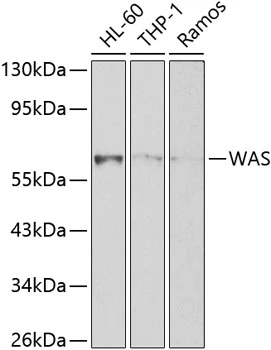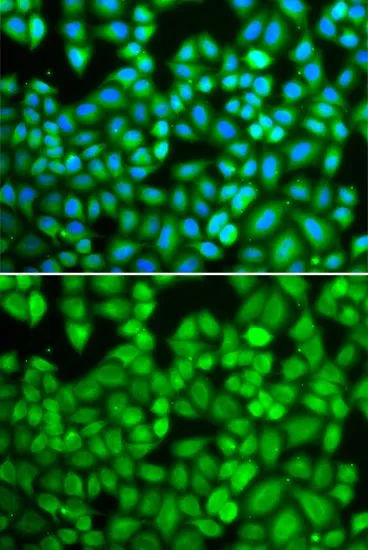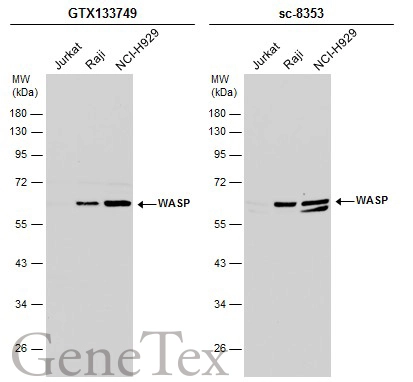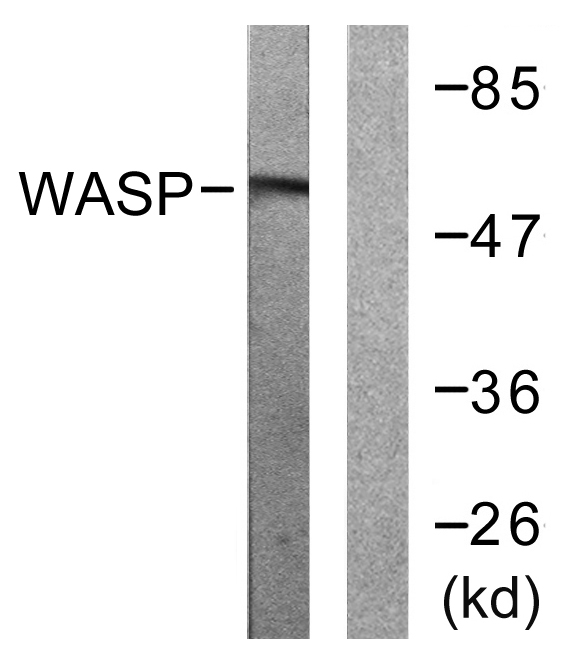
WB analysis of various sample lysates using GTX16382 WASP antibody. Dilution : 1:1000 Loading : 25μg per lane
WASP antibody
GTX16382
ApplicationsImmunoFluorescence, Western Blot, ImmunoCytoChemistry
Product group Antibodies
ReactivityHuman
TargetWAS
Overview
- SupplierGeneTex
- Product NameWASP antibody
- Delivery Days Customer7
- Application Supplier NoteWB: 1:500 - 1:2000. ICC/IF: 1:10 - 1:100. *Optimal dilutions/concentrations should be determined by the researcher.Not tested in other applications.
- ApplicationsImmunoFluorescence, Western Blot, ImmunoCytoChemistry
- CertificationResearch Use Only
- ClonalityPolyclonal
- ConjugateUnconjugated
- Gene ID7454
- Target nameWAS
- Target descriptionWASP actin nucleation promoting factor
- Target synonymsIMD2, SCNX, THC, THC1, WASP, WASPA, actin nucleation-promoting factor WAS, eczema-thrombocytopenia, thrombocytopenia 1 (X-linked), wiskott-Aldrich syndrome protein
- HostRabbit
- IsotypeIgG
- Protein IDP42768
- Protein NameActin nucleation-promoting factor WAS
- Scientific DescriptionThe Wiskott-Aldrich syndrome (WAS) family of proteins share similar domain structure, and are involved in transduction of signals from receptors on the cell surface to the actin cytoskeleton. The presence of a number of different motifs suggests that they are regulated by a number of different stimuli, and interact with multiple proteins. Recent studies have demonstrated that these proteins, directly or indirectly, associate with the small GTPase, Cdc42, known to regulate formation of actin filaments, and the cytoskeletal organizing complex, Arp2/3. Wiskott-Aldrich syndrome is a rare, inherited, X-linked, recessive disease characterized by immune dysregulation and microthrombocytopenia, and is caused by mutations in the WAS gene. The WAS gene product is a cytoplasmic protein, expressed exclusively in hematopoietic cells, which show signalling and cytoskeletal abnormalities in WAS patients. A transcript variant arising as a result of alternative promoter usage, and containing a different 5 UTR sequence, has been described, however, its full-length nature is not known. [provided by RefSeq, Jul 2008]
- ReactivityHuman
- Storage Instruction-20°C or -80°C,2°C to 8°C
- UNSPSC12352203








